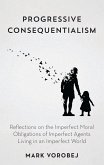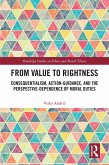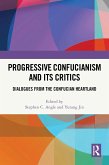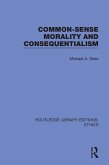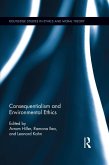The consequentialist moral stance known as progressive consequentialism is distinguished by its core guiding intuition-?what Mark Vorobej calls the progressive constraint-that you are morally required to leave the world in better shape than you found it. Popular culture is replete with references to this intriguing but profoundly ambiguous injunction. Philosophers, however, have had surprisingly little to say about either the meaning, the merits, and the practical implications of this neglected moral claim.
This book fills this glaring gap in the literature. Progressive Consequentialism is, first and foremost, a work in moral theory with an aim to carefully disambiguate the progressive constraint and to rigorously explore the semantic content and the normative implications of some of its most promising variants.
This book fills this glaring gap in the literature. Progressive Consequentialism is, first and foremost, a work in moral theory with an aim to carefully disambiguate the progressive constraint and to rigorously explore the semantic content and the normative implications of some of its most promising variants.



